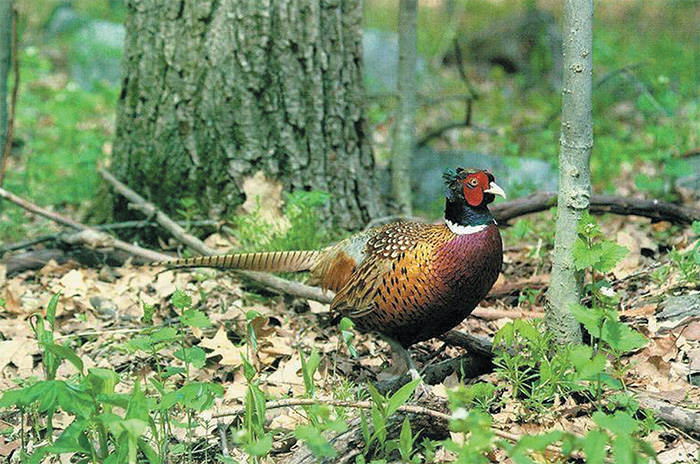
With the UK in the grip of the wettest, wildest winter on record, game birds are prone to infection from an upsurge of parasitic worms that can hit them hard. Wet weather increases the likelihood of survival of worm eggs in the environment and can cause a serious burden on game bird health, even on those that appear fit and healthy.
One consequence of very wet weather is that worm eggs don’t dry out, as mud provides the ideal environment to allow them to survive for longer, increasing the worm challenge to game birds. Once a worm infection is established, the whole environment will be heavily contaminated with infective worm eggs so the importance of a regular strategic worming program should not be under estimated.
Stephen Lister, BSc BVetMed Cert PMP Dipl ECPVS MRCVS of Crowshall Veterinary Services has some advice for game bird producers at this time of year,“The risk for worm infection is always there whatever time of year it is, but worms will multiply best when conditions are warm and wet. Historically winter has been a quiet time for worms, but we are now experiencing worm problems in the normally quieter winter months.
"Since it’s important to keep the range dry in these exceptional weather conditions it is more important than ever to be vigilant and aware of possible worm burdens. The solution to this is to discuss with your veterinary surgeon and adapt your worming program accordingly. This may mean a reduction in the time interval of worming in feed with Flubenvet 5% w/w Premix.”
Alastair Johnston BVMS, Cert VA, MRCVS of Minster Vets agrees that the recent conditions have increased the risk, "With the game season nearly upon us and in view of the extremely wet weather across the country recently, there is a high possibility during coming months of increased levels of worms and other pathogens for both pheasants and partridge.
It is essential that game producers pay extra attention to their management in order to minimise the risk of disease in their birds. Worms can have a direct effect on health, including poor weight gain and also lead to an increased susceptibility to other diseases such as coccidiosis and motile protozoa. Regular worming of both breeding birds and also rearing poults with flubendazole will help to reduce disease issues."
On farms with a proven heavy worm burden and high infection pressure a strategic deworming programme with frequent treatment in line with the parasite’s pre patent period is advocated. For the ever present and deadly Gapeworm, this means treatment every 3 weeks.1 It’s also essential that all incoming birds are treated and to always feed off the ground using feeders to prevent mud and droppings contaminating the feed. Moving pens regularly and avoiding overcrowding will also help tackle worm problems as well as worming all birds before release.
So this spring make sure your game birds can weather the parasitic storm by routinely worming and reducing exposure to mud where possible, to stay one step ahead in the battle against worms.
